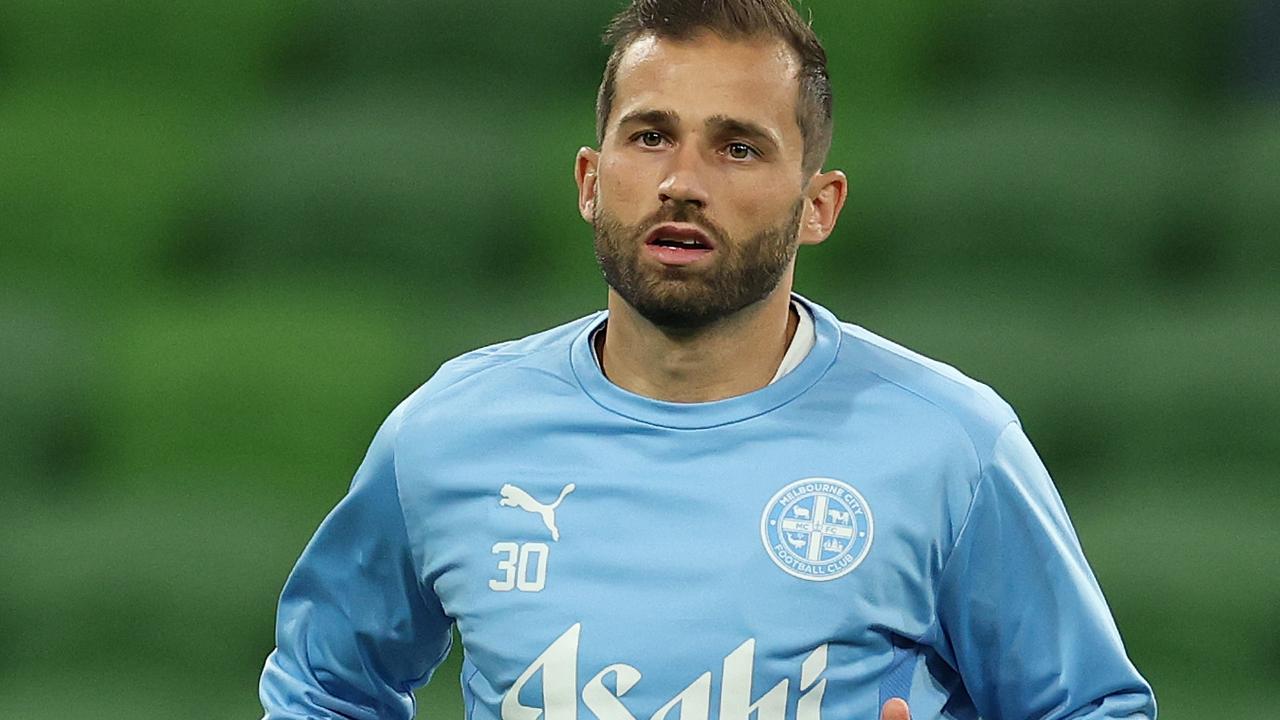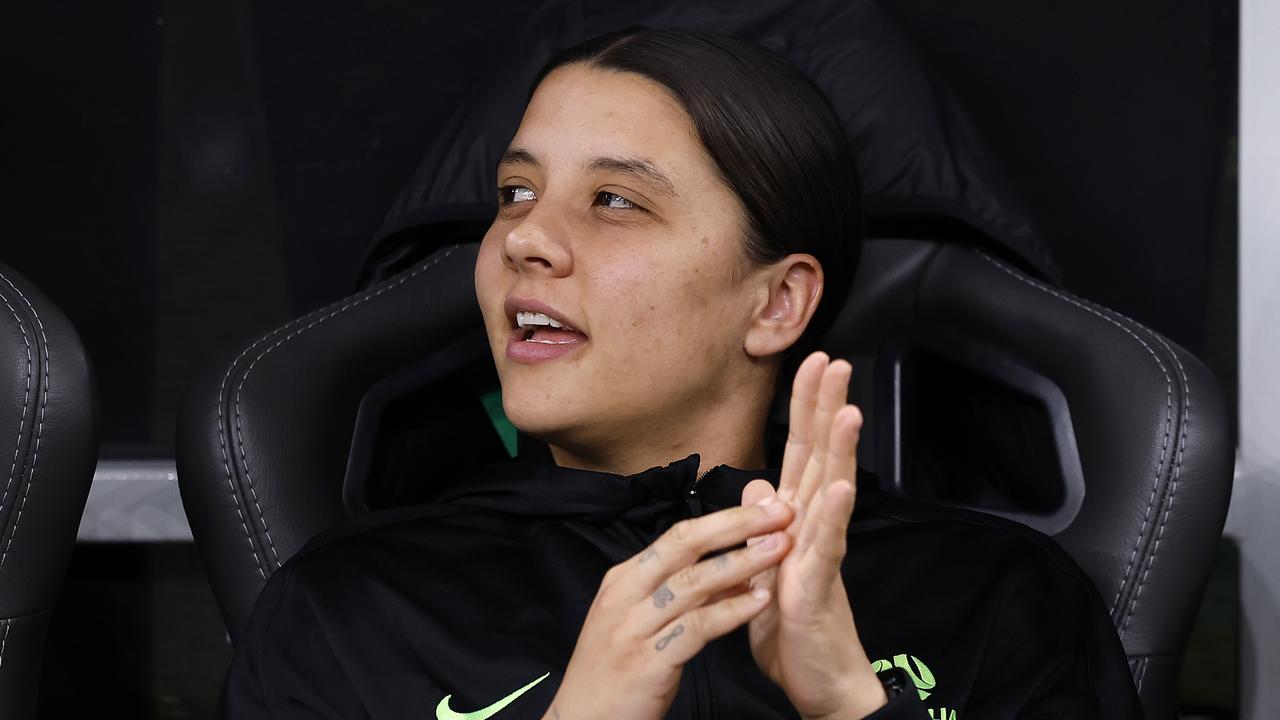Ten years on from the Swiss raids that exposed rampant bribery in FIFA and became the most dramatic day in football history
For years world football officials had been lining their pockets in exchange for World Cup votes and broadcast deals. 10 years ago, it all came crashing down with the exposure of FIFA’s stunning bribery scandal.
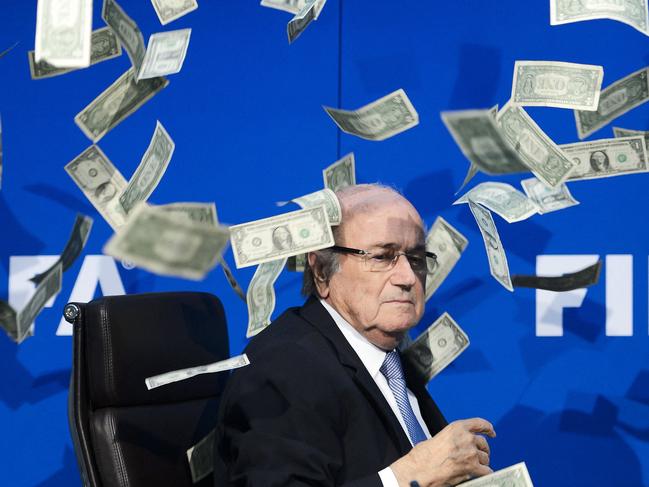
Football
Don't miss out on the headlines from Football. Followed categories will be added to My News.
It was just before 6am on May 27, 2015 - ten years ago - when my mobile phone buzzed. I was asleep in a modest Zurich hotel room, but I saw the person calling was a friend and contact based on the other side of the Atlantic.
“Get yourself down to the Baur au Lac! They are about to arrest a load of FIFA people.”
The Baur au Lac was the gilt-and-marble five-star hotel overlooking Lake Zurich where most members of Fifa’s ruling executive committee stayed. There were no taxis at that time of the morning but the Baur au Lac was less than a mile away across the River Limmat so I ran, and arrived sweating in the cool of the dawn just in time to see a FIFA member being ushered under a bedsheet into an unmarked car.
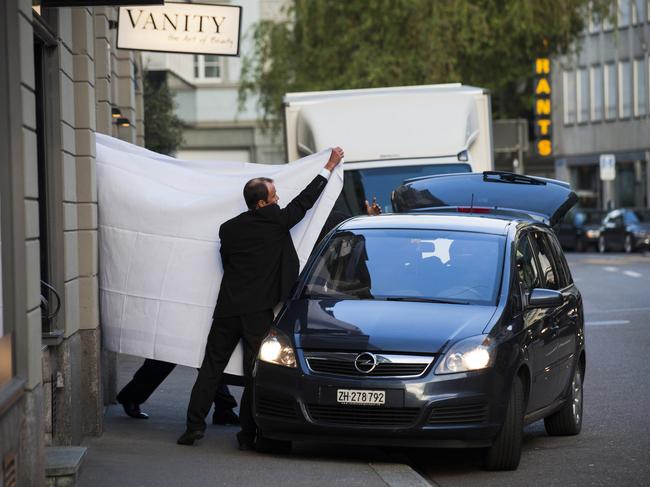
Inside the hotel, the staff appeared shocked by the police swoop. Seven FIFA officials, several of them executive committee members and one of them, Jeffrey Webb, a FIFA vice-president seen by some as the heir apparent to Sepp Blatter, had been arrested.
Within an hour, dozens of news crews had arrived as the most dramatic day in Fifa’s history unfolded.
The US Department of Justice (DoJ) announced details of a huge operation targeting corrupt football officials that had been sparked by the late Chuck Blazer, the American who had been a FIFA member for more than two decades, turning whistleblower.
The DoJ’s unsealed indictment was as exciting as the arrests. It detailed more than 40 individuals and companies as unnamed “co-conspirators”, although many of them were clearly identifiable as some of the most senior figures in FIFA over the past 25 years. It also outlined how football officials had enriched themselves by taking bribes for World Cup votes and broadcast deals.
The chairman of the English FA at the time was Greg Dyke and he was already on his way to Zurich for the following day’s FIFA Congress when the news of the arrests broke.
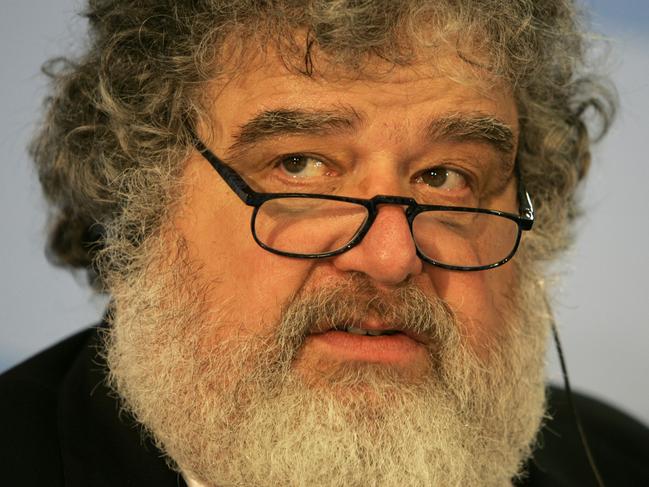
“That day changed it all,” Dyke says. “All the people that I had been told were the coming men at FIFA were suddenly all in jail. It told you everything you needed to know about FIFA at that time.
“It was quite clear there had been a lot of bribery to get the World Cup to Qatar and probably Russia too but it was still a huge surprise. Certainly no one had any idea that the Americans were looking at FIFA, or that Chuck Blazer had turned whistleblower.”
Fifa’s president Blatter, secretary-general Jerome Valcke and other senior staff initially responded with anger and irritation that their congress had been targeted in this way, according to sources who worked closely with them. That soon turned to real concern after Swiss police arrived at Fifa’s headquarters, seized documents and computers, and questioned senior executives.
One of those grilled by the police that day told The Times that was the moment the scale of the crisis became clear. “The officers came in and closed down the office,” he recalled. “Nothing like that had ever happened before and some of us realised then [that] this is something we can’t solve internally.”
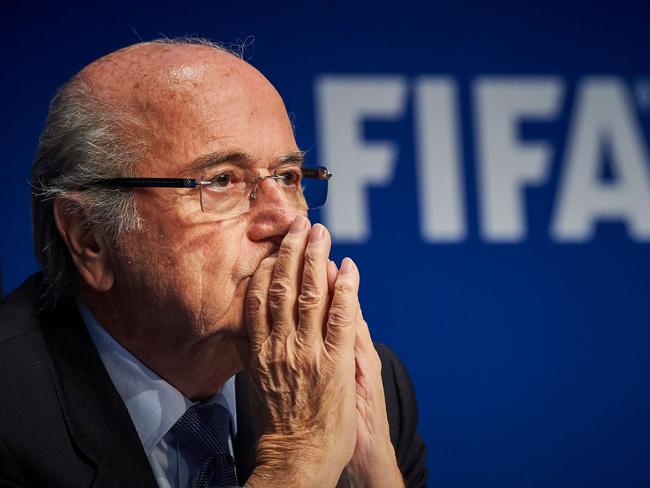
Blatter insisted that the show must go on, however, and the following day won a comfortable victory over his presidential rival Prince Ali of Jordan - an outcome that was remarkable to outsiders but all-too-familiar to those who followed FIFA closely.
“It was a very strange atmosphere at that congress,” Jim Boyce, the Northern Ireland official who was Britain’s FIFA vice-president, remembers. “There were these empty seats, and a lot of gloom. Sepp Blatter was trying to make out it was business as usual, but when you knew that Jeffrey Webb, the man many saw as the next FIFA president, had been arrested it became clear that this could not be brushed under the carpet.”
Walter de Gregorio, Fifa’s communication chief, tried to take the sting out of the crisis by insisting it was “a good day for FIFA” - a phrase he had agreed with his superiors to use, but which infuriated Blatter loyalists and the wives of those executives who had been arrested. The old guard thought FIFA should just batten down the hatches, but that proved impossible.
Blatter and Valcke had tried to insist that those under investigation were peripheral to FIFA and that their positions were safe. But the DoJ’s indictment contained a bombshell waiting to explode: it stated that FIFA had facilitated a dollars 10 million (now pounds 7.83 million) bribe to Jack Warner, the disgraced former FIFA vice-president who had run football in the Caribbean and North America for decades, to vote for South Africa to host the 2010 World Cup.
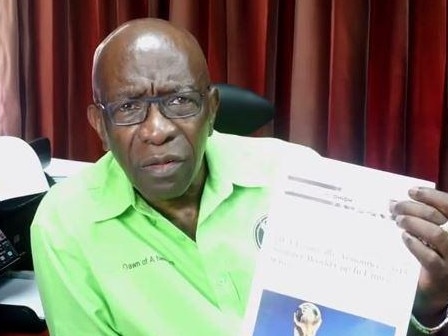
“A high-ranking FIFA official caused payments totalling dollars 10 million to be wired from a FIFA account in Switzerland to a Bank of America account in New York . . . controlled by Jack Warner,” the indictment stated.
It was to be Blatter and Valcke’s downfall, and one I played a small part in. They had denied any knowledge of the dollars 10 million payment but, just two hours after that official denial, a contact in South Africa sent me a copy of a letter sent by South Africa’s FA in 2008 asking FIFA to send the money to Warner - and the letter was addressed to Valcke.
The publication of that letter prompted a crisis meeting of Fifa’s management board, including Valcke, his deputy Markus Kattner and legal chief Marco Villiger. They agreed that the only way out was for Blatter to be persuaded to step down, and Villiger was given the task of delivering the news to the president, explaining to him that from a legal standpoint it was the only way to save FIFA.
That evening a shaky and forlorn Blatter appeared at a hastily convened press conference to deliver the news that he had resigned as president, and would stand down as soon as a successor was elected.
In his final weeks, Blatter fired De Gregorio shortly after he made a joke about the FIFA crisis on a Swiss news show.
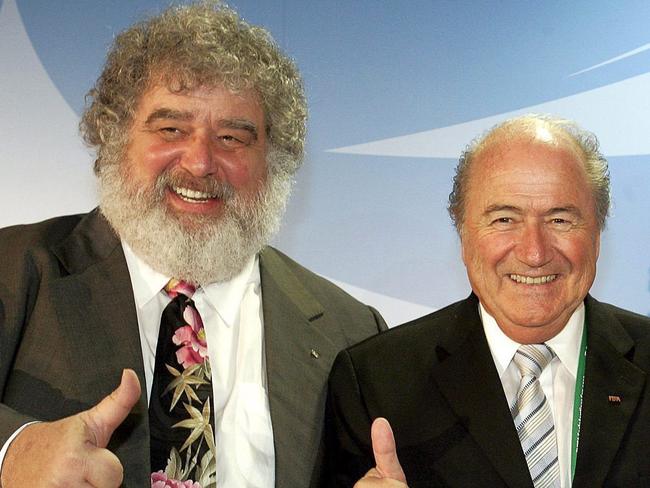
“The FIFA president, secretary-general and communications director are in a car,” the joke went.
“Who is driving?”
Answer: “The police.”
Blatter was not amused. But his score-settling was brought to an abrupt halt as investigators uncovered details of Fifa’s activities during his 17-year reign. Within weeks, Blatter and Valcke were suspended and made the subject of criminal investigations, and were later banned from football until 2028, while the other executives soon departed too.
Michel Platini, the former France captain and UEFA president, had hopes of succeeding Blatter but they were dashed after details were revealed of a payment of pounds 1.8 million that he received from FIFA in 2011, for what they claimed was to settle a verbal agreement they had made 13 years previously.
The pair, however, were cleared as recently as April this year of a criminal charge of fraud connected to the payment.
A later DoJ indictment accused Warner of being paid pounds 5 million to vote for Russia to host the 2018 World Cup, and stated that three South American FIFA members - the Brazilian Ricardo Teixeira, the late Nicolas Leoz, from Paraguay, and the late Julio Grondona from Argentina - took bribes to vote for Qatar to host the 2022 tournament. Both Qatar and Russia have repeatedly denied paying bribes, while Warner and Teixeira have denied wrongdoing.
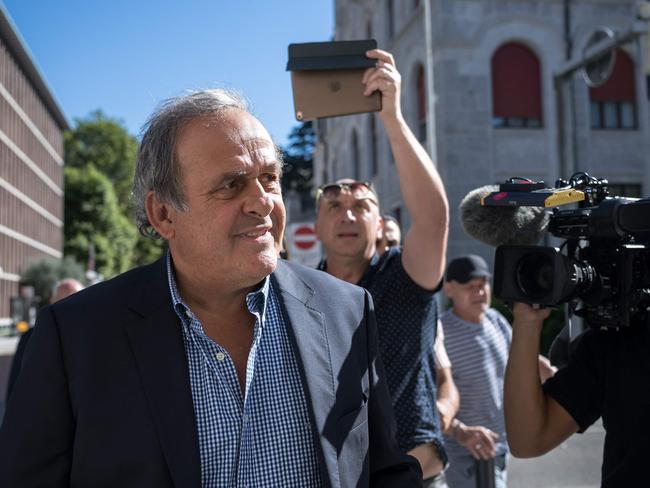
There were to be further swoops by the DoJ, with numerous football officials pleading guilty to corruption, and in February 2016 just about all the FIFA old guard were cleared out as Gianni Infantino won the election to be the new president.
Ten years on from that morning in Zurich, Fifa’s dealings with American law enforcement are more about security for next year’s World Cup in the US, Canada and Mexico than the painful past. Infantino met the attorney general, Pamela Boni, and the FBI director, Kash Patel, last month in Miami to discuss the tournament and next month’s Club World Cup.
There is still some unfinished business. Webb, the former Cayman Island banker who only 12 hours before his arrest had set out his vision of a FIFA that applied the “highest standards of honesty and integrity”, pleaded guilty in May 2016 to one count of racketeering conspiracy, three of wire fraud conspiracy and three of money laundering conspiracy.
But Webb is now living a comfortable life in Atlanta and still awaiting his sentence all these years on. The delay is believed to be because the DoJ is still involved in the US courts over a case involving another football official that centres on whether those bribes were actual criminal offences under American law.
Warner, perhaps the biggest FIFA rogue of them all, remains at large in Trinidad, where he has successfully fended off all attempts by the US to extradite him.
Originally published as Ten years on from the Swiss raids that exposed rampant bribery in FIFA and became the most dramatic day in football history

